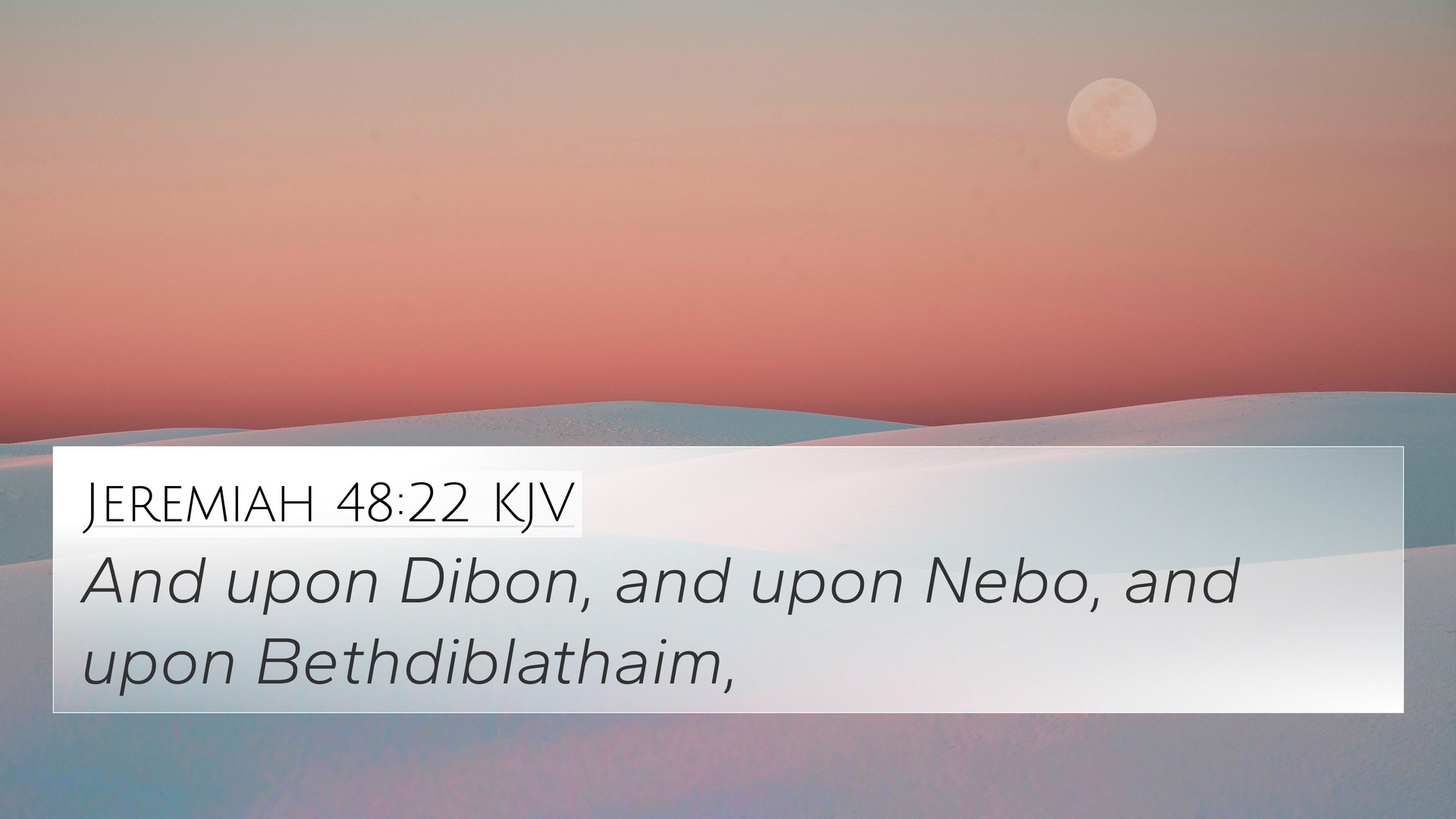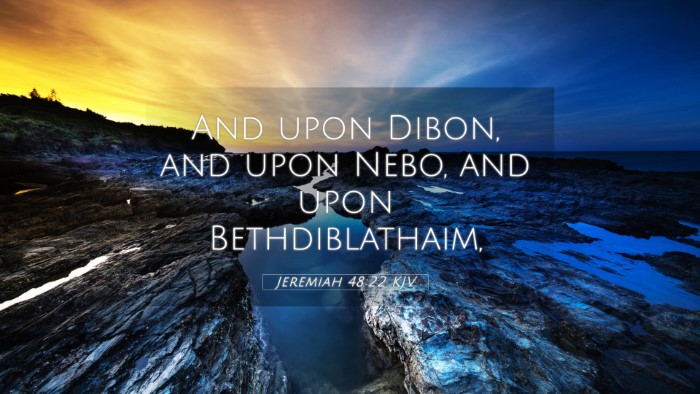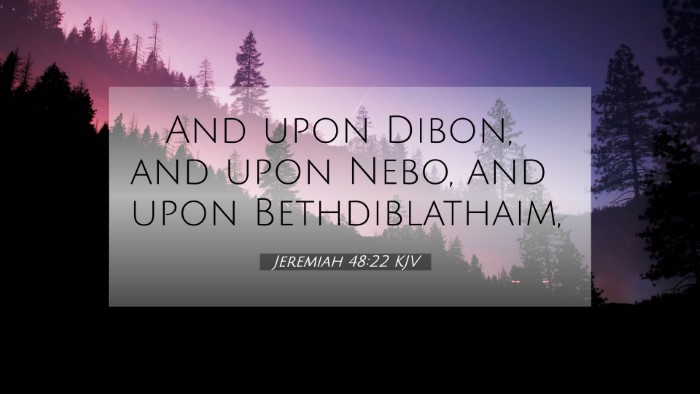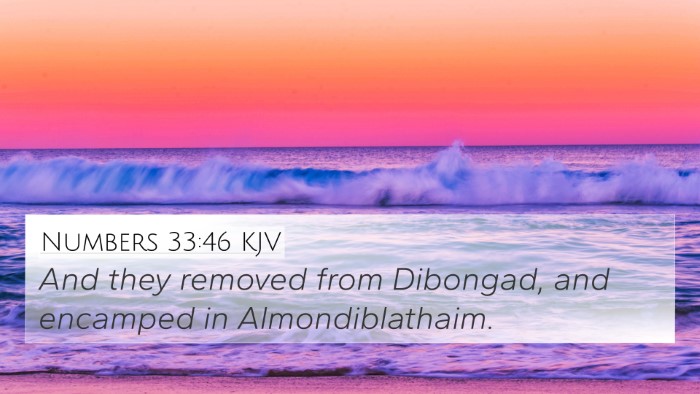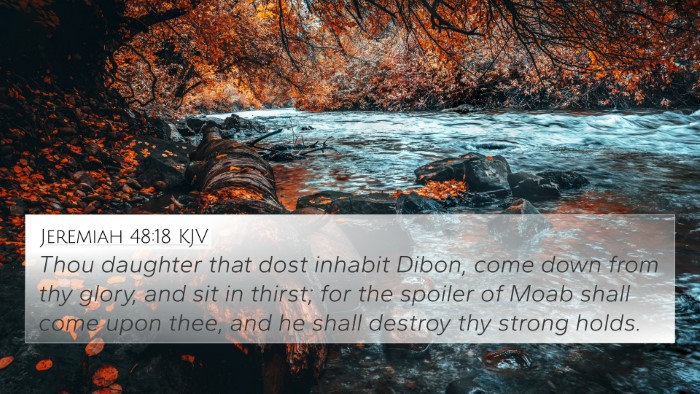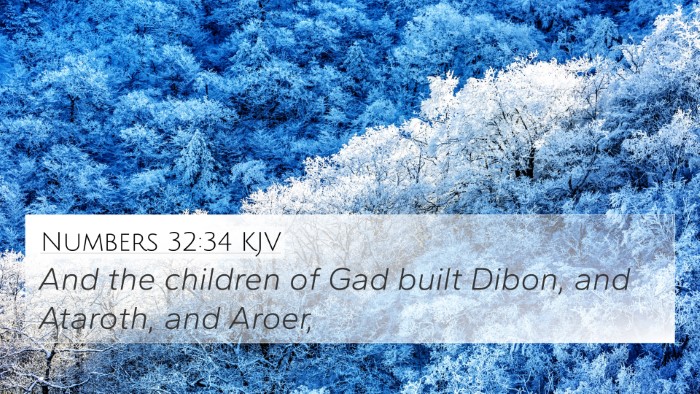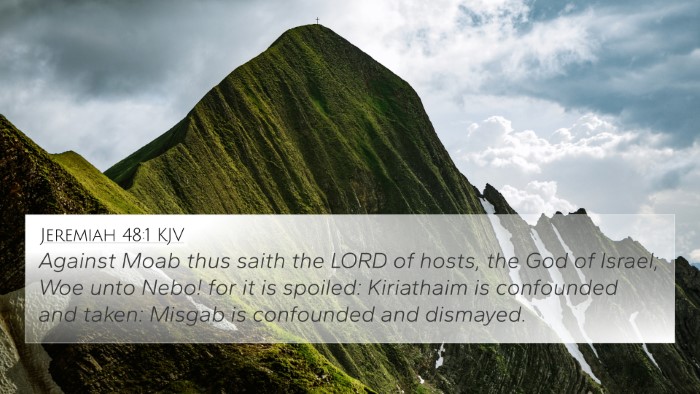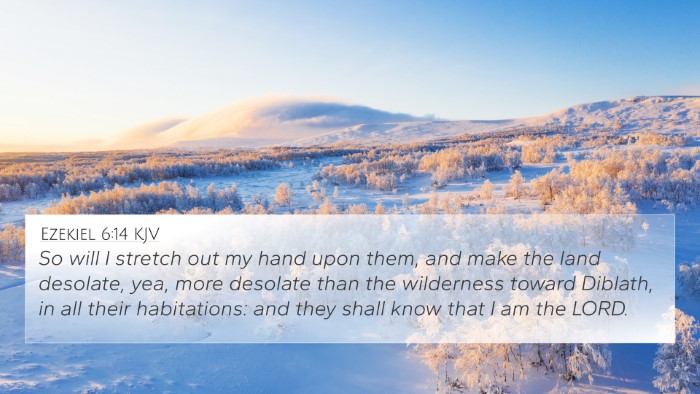Understanding Jeremiah 48:22
Verse Reference: Jeremiah 48:22
This verse is part of a broader context in the book of Jeremiah, which features prophetic declarations about judgment against Moab, emphasizing the consequences of their pride and idolatry. In verse 22, the mention of cities and territories is symbolic of the decline and desolation that Moab will face.
Summary of Insights from Public Domain Commentaries
Matthew Henry's Commentary
Henry emphasizes that the cities mentioned in Jeremiah 48:22 reflect the totality of Moab's downfall. His analysis highlights that these cities symbolize not just physical locations but also the spiritual and moral failures of Moab, implying that their arrogance led them away from God’s grace. The destruction of these cities serves as a reflection of God’s judgment on a nation that has turned from Him.
Albert Barnes' Notes
Barnes notes that in Jeremiah 48:22, the specific naming of cities illustrates the certainty of Moab's judgment. He connects this to the broader historical contexts of conflict involving Moab and Israel. His commentary explains that these cities were significant for trade and military defense, and their destruction indicates a collapse in both cultural and social structures.
Adam Clarke's Commentary
Clarke offers a detailed analysis of the geographical significance of the cities mentioned in the verse. He underscores how these locations were centers of life, commerce, and worship. The impending destruction of the cities serves as a metaphor for the complete annihilation of Moab's identity as a nation and its systems of idol worship.
Meaning and Application
The meaning of Jeremiah 48:22 reminds readers of the consequences of turning away from God, illustrated through the fate of Moab. The specifics of the cities serve to communicate an urgent message about repentance and the seriousness of spiritual decline. This thematic element invites comparative analysis with other scriptures that discuss divine judgment and the importance of faithfulness to God's commandments.
Cross References
- Isaiah 15:1-9 - Similar themes of judgment against Moab and prophecy of desolation.
- Jeremiah 46:1-2 - Context of judgment against nations, including Moab.
- Ezekiel 25:8-11 - Prophetic words against Moab, linking cities and cities' fates to divine judgment.
- Amos 2:1-3 - Illustrates God's judgment on neighboring nations, including Moab.
- Numbers 24:17 - Prophecy regarding Moab’s eventual downfall, foreshadowing the desolation mentioned in Jeremiah.
- Zephaniah 2:8-11 - Outlines God's plans for the Moabites reflecting similar judgments.
- Luke 13:3 - A New Testament reminder that all who do not repent will face judgment, connecting to themes in Jeremiah.
Exploring Bible Verse Connections
This engagement with Jeremiah 48:22 opens up pathways for thematic Bible verse connections, enhancing the understanding of God's nature in response to human actions. The concept of divine retribution visible in Jeremiah can be seen mirrored across different books of the Bible, both in the Old and New Testaments.
Tools for Bible Cross-Referencing
To engage deeply with cross-referencing biblical texts like Jeremiah 48:22, readers can utilize several resources and methods:
- Bible Concordance: A tool that allows locating terms and references quickly.
- Bible Cross-Reference Guide: Guides illuminating connections between verses on shared themes.
- Cross-Reference Bible Study: Methods that delve into layered meanings through comparing different scriptures.
- Bible Chain References: Systems that link verses narratively or thematically.
Conclusion
In conclusion, Jeremiah 48:22 serves as a poignant reminder of the themes of judgment, pride, and accountability within the biblical narrative. By exploring cross references and the thematic connections throughout scripture, readers gain a fuller understanding of how these principles apply to their lives today and the ongoing dialogue present in the Word of God.
